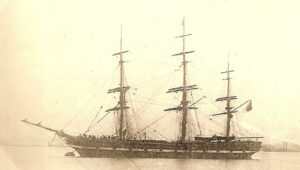Sheltering Angel Out-take ~ Andrew and the Northfleet
When I draft a book manuscript, inevitably I omit sections that don’t serve the plot. But I never completely delete them. Below is a short omitted section of Sheltering Angel that gives insight into Andrew Cunningham’s character.

A lovely glimpse into Andrew’s character! Certainly the cold waters of the Firth of Forth prepared him for what was to come.
Thanks for this observation, Edie dear!
I love this little tidbit, Ellie! Thanks for posting it!